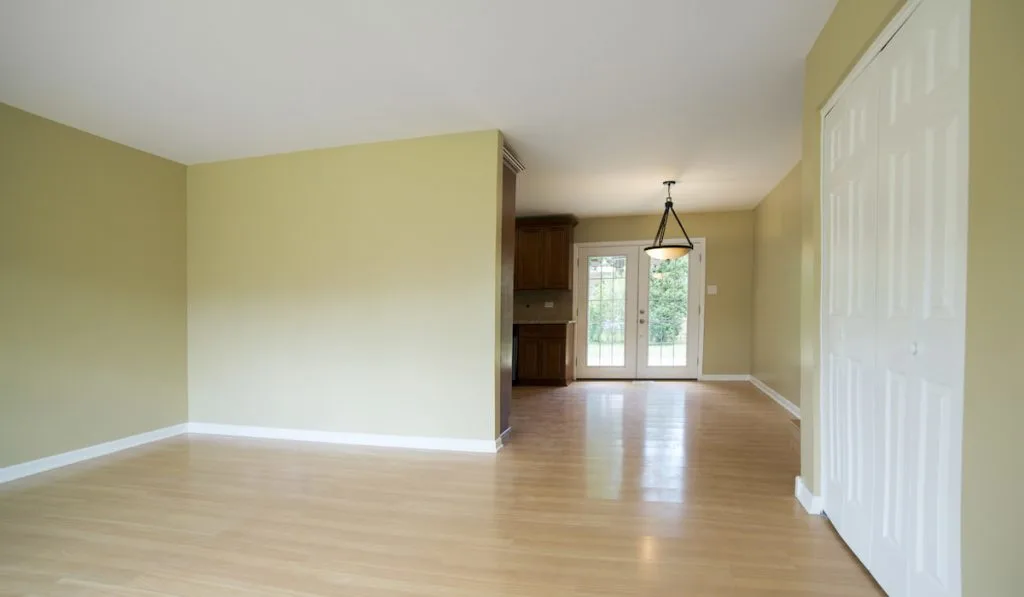Should apartments be cleaned before you move in? Absolutely!
Landlords and property management teams are responsible for providing a clean, well-maintained apartment for new tenants. Things should be clean, the amenities should be in good working order, and all the lightbulbs, faucets, and other fixtures should be ok.
It’s reasonable to assume, at the very least, that your apartment should be clean when you move in. That’s what the previous tenant should have done, and, if they didn’t, that’s what their security deposit was for.

Offering new tenants a clean living space is the very basics of being a good landlord. You (we) are paying for a service and there are other options out there if you walk into a dirty apartment that should have been cleaned.
Technically, there is no law stating that a landlord must clean an apartment before move-in. However, landlords typically require a downpayment to secure themselves against the risk of someone trashing the apartment or damaging something inside that needs to be repaired after they move out.
For them to have a legal claim over any tenant’s security deposit, they must be able to show that the damage occurred while that specific tenant occupied the apartment.
What does that mean for you? Well, if you move into a dirty apartment and leave with a dirtier apartment, it’s hard to show the extent of the messiness in court.
Aside from wanting to offer tenants a pleasant experience, that’s one of the reasons why landlords want their apartments clean for new leases. It’s a clean slate.
If you walk into a dirty apartment on the day you’re scheduled to move in, you should take action to prevent yourself from paying for the mess down the road with your security deposit.
You should also raise the issue with the complex manager or landlord. Here are 7 tips if your apartment is dirty on move in.
1. Take Pictures of What’s Going On Inside
If you discover, upon walking into your new apartment, that there is grime in the fridge, stains in the bathroom, dirty carpets, or anything else unsatisfactory, you should bust out your phone and snap some pictures.
Capture everything that you can on camera because you might have to show it in court if things get really bad.
2. Document Everything
Besides taking photos of the dirt or any damage, you should write it all down in an email to yourself. Having a written record of the condition of your apartment will serve you well if an unscrupulous landlord or property manager tries to pin the dirt on you.
It’s completely appropriate to send the list of issues and dirty items to your landlord. Remember, you aren’t responsible for removing a previous tenant’s trash or furniture. That’s on the landlord. Write them and let them know what the problems are and ask that they remedy them.
3. Demand an Inspection

Most apartments will conduct what’s called a move-in inspection once you arrive or in the days before move-in. A representative or the landlord will walk through the apartment with you to document the condition of the place.
This is the time when you need to be a stickler for cleanliness. If you don’t speak up, it may come back to haunt you.
They could try to say damage or some dirty carpets happened as a result of you living there when, in fact, you know that they were that way before you arrived.
When it comes time for you to move, you’ll likely go through what’s called a move-out inspection. The landlord or an agent will use the inspection done at the start of your lease and measure it against the current condition of the apartment.
Whatever the differences are, they are probably going to be your responsibility to clean or fix. So, if you don’t say anything at the beginning about those holes in the walls or the broken windows, you may end up paying for them.
4. Ask for Compensation
Before you clear out cabinets with old spices and start scrubbing the refrigerator, talk to your management company or landlord about the situation. If you’ve already moved in, you’re still in a fairly good position.
If the lease said the apartment would be in good condition upon move-in, and it’s not, the owner/manager is technically in breach of contract. They would lose possibly thousands of dollars if you decide to walk.
Talk to them about a break in the rent due to the unit’s current condition. Tell them how it’s impacted your life and wasn’t up to expectations. Most of the time, you can get a bit off of the first month’s rent to make up for the trouble.
5. Read the Lease Carefully Before You Sign
Are landlords required to clean your apartment before moving in? That depends on the lease. It’s what most people expect, but perhaps the apartment was listed in “As-Is” condition.
You need to read the lease carefully to know what you are accountable for and what the landlord and management are responsible for.

6. Arrange a Visit Before Signing
Another thing to do before you move your stuff into a new apartment is to visit the place! Make time in your schedule to walk through the rooms.
Remember, you can’t always trust the pictures in the listing. They could be using stock photos or the pictures could be years old.
Just to be on the safe side, arrange a visit before moving day to see the apartment and make sure it’s up to your expectations. If it’s not, address them with the landlord and ask that they be taken care of before you move in. That will go a long way in avoiding any unpleasant surprises on your first day.
7. Consider Cancelling
If things are in really bad condition, then you should think about walking.
If the lease says that the apartment will be clean and the appliances will be working, etc., and they aren’t, then it’s a bad sign. You should think about whether you want to live there long-term.
If a landlord or management team can’t get it together for a brand new tenant, think about how they’ll treat you once you’ve lived there for a year. They should be working hard upfront to impress you and make moving in as smooth as possible.
